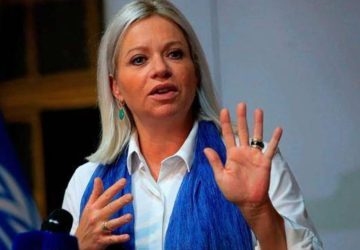On December 2nd, Israel resumed airstrikes in Gaza for a second day after a truce with Hamas collapsed, disregarding international appeals for an extension. The Gaza Ministry of Health reported nearly 200 casualties since the truce ended, as Israel pulled negotiators back from Qatar after an ‘impasse.’
Israel carried out deadly bombardments in Gaza for a second day on Saturday after a week-long truce with Hamas collapsed, despite international calls for an extension. Both sides blamed each other for breaking the truce, with Israel claiming that Hamas had tried to fire a rocket before it ended and that it failed to produce a list of further hostages for release.
Clouds of gray smoke from the strikes hung over Gaza, where the Gaza Health Ministry said nearly 200 people had been killed since the pause in hostilities expired early Friday.
The Israeli military said Saturday it had attacked more than 400 targets in the Gaza Strip since the pause in the fighting with Hamas ended. Air, naval, and ground forces were involved, it said, adding that fighter jets hit “more than 50 targets in an extensive attack in the Khan Yunis area.” The total target figure is roughly in line with the daily average number prior to the pause, according to military figures released previously.
As hostilities resumed, Hamas’s armed wing received the order to resume combat and to defend the Gaza Strip, according to a source close to the group. The source asked not to be named because they were not authorized to speak to the media.
On Saturday morning, the Israeli army sent text messages to residents of several areas, including the northern districts of Khan Younès, as well as villages bordering the border with Israel in the central Gaza Strip, ordering them to “leave immediately.”
International leaders and humanitarian groups condemned the return to fighting.
“I deeply regret that military operations have started again in Gaza,” UN Secretary-General António Guterres said on X (formerly Twitter).
“Today, in a matter of hours, scores were reportedly killed and injured,” UN Humanitarian Chief Martin Griffiths said. “Families were told to evacuate, again. Hopes were dashed.”
The United States said it is working with regional partners to reach another ceasefire. “We’re going to continue to work with Israel and Egypt and Qatar on efforts to reimplement the pause,” US Defense Secretary Lloyd Austin told reporters in California on Friday. Mediation efforts by Qatar and Egypt are ongoing, said a source briefed on the talks who asked not to be named.
The Palestine Red Crescent Society (PRCS) said on Saturday that it had “now received aid trucks through the Rafah crossing”, from its Egyptian counterparts. Late Friday, the PRCS had announced that Israel told organizations “that the entry of aid trucks from the Egyptian side to the #Gaza Strip is prohibited, starting from today until further notice.” Officials on both sides of the Rafah crossing had confirmed that no trucks had entered since fighting resumed.
Israeli forces carried out operations early Saturday in various areas of the occupied West Bank, according to the official Palestinian news agency Wafa.
Fears of a wider regional conflict grew after the Syrian Defence Ministry said Israeli strikes had hit Damascus on Saturday.
Miroslava Salazar, with AFP






